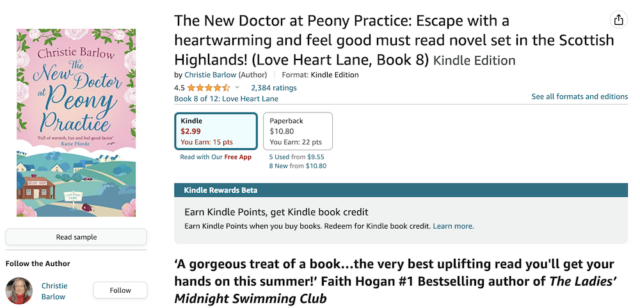Some friends in the publishing world have pointed me to the Book Industry Study Group (BISG) statement on the misuse of subtitle metadata. The statement identifies a real issue (keyword stuffing), but neglects to mention the 900-pound gorilla in the room that’s responsible: Amazon, and the resulting contortions that publishers engage in to game the Amazon search algorithm. Here’s how the statement sets up the issue:
BISG has received reports of metadata senders using the subtitle field – and sometimes the title field – to carry marketing and promotional text. An example might be content such as “A Thrilling Suspense Novel from the Author of X” placed in the subtitle field. The Book Industry Study Group strongly discourages this practice, and it urges publishers to avoid using the title and subtitle fields for content other than these bibliographic elements.
Easier said that done. Most physical and ebook sales take place on Amazon, and Amazon clearly rewards such tactics even while its metadata guidelines for ebooks warn against “superfluous words” and “reference to sales rank (e.g., ‘bestselling’).”
I tell publishers that subtitles should contain relevant keywords that not only signal to readers what the book is about, but can help Amazon’s algorithms better categorize and surface the book in search and detail page carousels. These are legitimate marketing and business goals. Indeed, I learned the hard way many years ago that if you fail to have relevant keywords you can really screw up a book launch:
That said, I think there is a right way to do it, and there’s a wrong way. I warn against over the top keyword stuffing in book titles and subtitles, not because it’s irritating or crosses the BISG’s recommendations, but because if Amazon does decide to clean up its catalog swelled by self publishing, I feel it will go after the most obvious and obnoxious offenders, citing the “superfluous” guideline above or the requirement that the title and subtitle match what’s on the cover.
I think it’s also worth mentioning that self-published and indie authors are not the only offenders who take things too far with keyword stuffing. Here’s one from HarperCollins I spotted last year: “The New Doctor at Peony Practice: Escape with a heartwarming and feel good must read novel set in the Scottish Highlands! (Love Heart Lane, Book 8).”

Getting back to the BISG: The statement recognizes that retailers are driving the trend:
Senders should make use of available metadata fields for promotional copy and recipients, especially retailers, should find ways to display such information to consumers.
Unless Amazon changes its search algorithm or starts enforcing a strict policy that forbids such tactics, I don’t expect many publishers to take heed of the BISG’s concerns.
